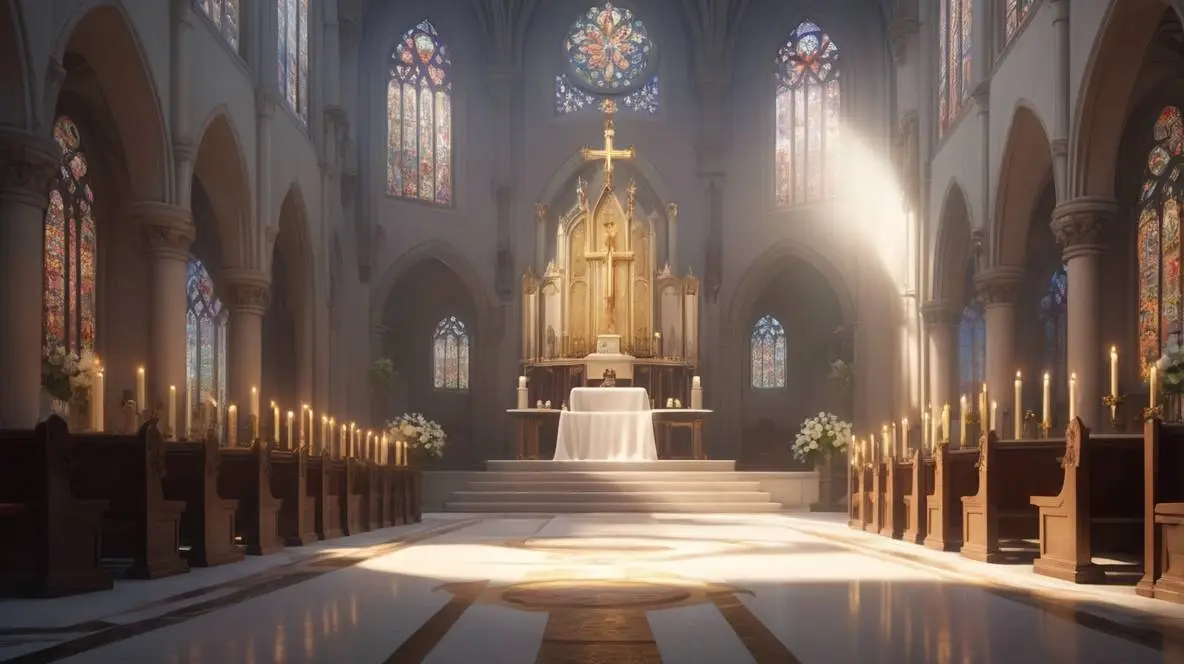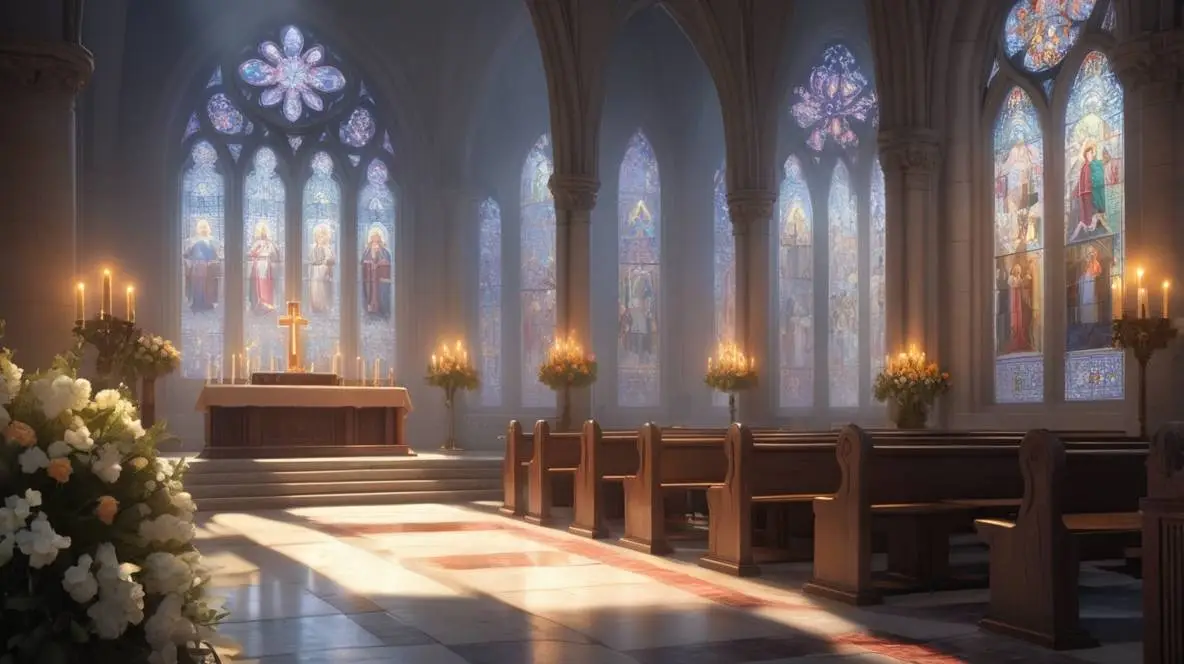All Saints’ Day in the United States: Honoring the Saints and Faithful
All Saints’ Day is a cherished Christian tradition celebrated across the world, including in the United States. Observed on November 1st, this day commemorates all the saints—known and unknown—who have led lives of holiness and devotion. It’s a day to remember those who have shaped the Christian faith and to honor their sacrifices.

- Friday, 1 November 2024
- All Saints’ Day 2025; Saturday, 01 November 2025
- All Saints’ Day 2026; Sunday, 01 November 2026
- All Saints’ Day 2027: Monday, 01 November 2027
What is All Saints’ Day?
All Saints’ Day, also known as the Feast of All Saints, is a Christian solemnity dedicated to honoring all saints of the Church, whether they are recognized canonically or not. This celebration allows believers to remember those who dedicated their lives to faith and service, providing examples of virtue and selflessness.
The Origins and History of All Saints’ Day
Early Christian Roots
The origins of All Saints’ Day trace back to early Christian practices of honoring martyrs. Initially, this was done on various dates throughout the year, but eventually, it became standardized to November 1st in the Western Christian Church.
Formalization by Pope Gregory III
In the 8th century, Pope Gregory III designated November 1st as All Saints’ Day, a move that centralized the celebrations. This set the tone for modern observances of the holiday, which remains a holy day of obligation in several Christian denominations.

Significance of All Saints’ Day in the Christian Faith
All Saints’ Day serves as a reminder of the saints’ impact on Christianity. By celebrating their lives, Christians find inspiration to live with devotion and humility. Saints are viewed as intercessors who connect believers to God, and their stories serve as guides for leading a life of faith.
All Saints’ Day Traditions in the United States
While All Saints’ Day is widely celebrated, the traditions can vary:
- Church Services: Many congregations hold special services where saints are commemorated, prayers are offered, and sermons reflect the lives of saintly figures.
- Lighting Candles: Lighting candles to honor saints is a common practice, symbolizing the light of faith that the saints have passed down.
- Memorials and Remembrances: Families may visit graves or memorials of loved ones to remember those who have passed on, blending All Saints’ Day with personal moments of reflection.

The Relationship Between All Saints’ Day and All Souls’ Day
All Souls’ Day on November 2nd
All Souls’ Day follows All Saints’ Day and is dedicated to praying for the souls of the faithful departed. While All Saints’ Day honors those recognized for their holiness, All Souls’ Day remembers all who have passed, inviting believers to pray for their loved ones.
The Role of Saints in Christian Life
Saints hold a unique place in Christianity as individuals who led exemplary lives. They represent ideals of faith, service, and sacrifice, providing believers with models to emulate. Many Christians pray to specific saints for guidance or intervention, fostering a spiritual connection with these holy figures.
Celebrating All Saints’ Day in Different Christian Denominations
Catholic Observances
In the Catholic Church, All Saints’ Day is a holy day of obligation. Mass is held to honor the saints, and many Catholics attend services to pray for guidance and thankfulness.
Protestant Observances
While not observed with the same rituals, Protestant Christians often recognize All Saints’ Day as a day to honor those who contributed to the faith. Some Protestant services may include remembrances of notable Christian figures.
Why November 1st?
The choice of November 1st has historical significance, aligning with ancient festivals like Samhain that honored the dead. This date allowed Christianity to integrate with regional customs and helped create a unified observance.
Modern Observances of All Saints’ Day in the United States
- Community Gatherings: In some areas, communities gather for joint worship services.
- Schools and Youth Groups: Many Catholic schools teach children about saints, often through activities or storytelling to encourage understanding and appreciation of saintly lives.
- Family Celebrations: Families may share stories of saints, focusing on those whose names have personal significance.
All Saints’ Day in Other Cultures
All Saints’ Day is celebrated worldwide, and traditions can vary. In Latin America, it coincides with Día de los Muertos, or Day of the Dead, where families remember their ancestors with colorful altars and festivities.
Inspiring Quotes from Saints
All Saints’ Day is a perfect time to reflect on the words of saints whose lives inspire:
- “Preach the Gospel at all times; when necessary, use words.” — St. Francis of Assisi
- “The things that we love tell us what we are.” — St. Thomas Aquinas
- “We always find that those who walked closest to Christ were those who had to bear the greatest trials.” — St. Teresa of Ávila
Conclusion
All Saints’ Day in the United States is a profound celebration of those who have exemplified Christian virtues. It is a day to honor their sacrifices, to reflect on the ideals they upheld, and to renew a commitment to faith. As we remember the saints, we are inspired to lead lives of kindness, compassion, and dedication.
FAQs
1. Why is All Saints’ Day celebrated on November 1st?
All Saints’ Day was set on November 1st by Pope Gregory III to create a universal celebration of the saints within the Christian community.
2. Is All Saints’ Day a public holiday in the United States?
No, All Saints’ Day is not a federal holiday in the United States, though it is observed by many Christians through church services and personal reflection.
3. What is the difference between All Saints’ Day and All Souls’ Day?
All Saints’ Day honors recognized saints, while All Souls’ Day on November 2nd is dedicated to remembering all deceased faithful.
4. How do people observe All Saints’ Day?
Common practices include attending church services, lighting candles for saints, and visiting the graves of loved ones.
5. Do Protestant Christians celebrate All Saints’ Day?
Yes, some Protestant denominations observe All Saints’ Day, though their practices may differ from Catholic traditions.
You may also like:- Veterans Day
- Day of the Dead
- International Men’s Day
- Black Friday
- No Shave November
- Native American Heritage Month
- Movember
- Daylight Saving Time Ends
- All Souls’ Day
- New York City Marathon
- Iran Hostage Crisis
- Marine Corps Birthday
- World Kindness Day
- Thanksgiving Day
- Small Business Saturday
- World Toilet Day
- American Indian Heritage Day
- National Adoption Day
- America Recycles Day


